Relationships →
→
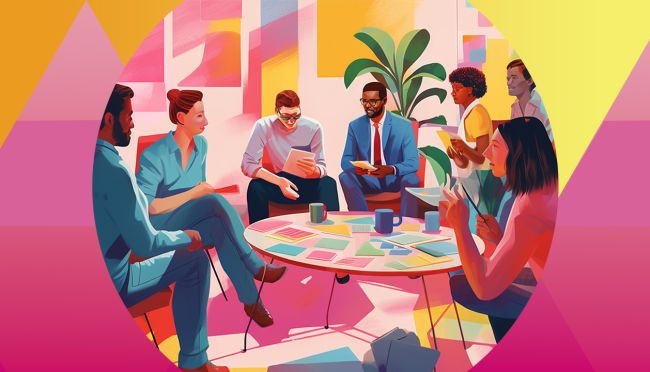
- 05 Feb 2024
- Research & Ideas
The Middle Manager of the Future: More Coaching, Less Commanding
Skilled middle managers foster collaboration, inspire employees, and link important functions at companies. An analysis of more than 35 million job postings by Letian Zhang paints a counterintuitive picture of today's midlevel manager. Could these roles provide an innovation edge?
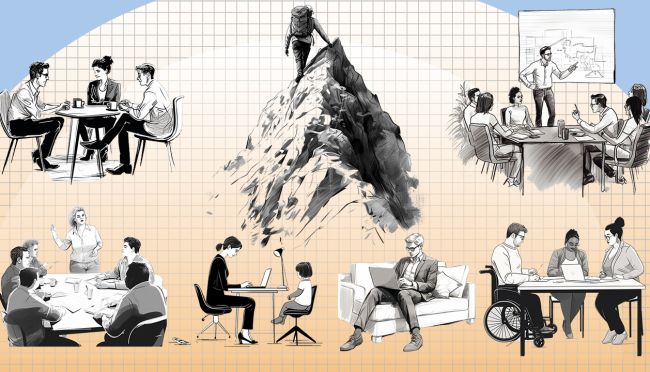
- 02 Jan 2024
- Research & Ideas
10 Trends to Watch in 2024
Employees may seek new approaches to balance, even as leaders consider whether to bring more teams back to offices or make hybrid work even more flexible. These are just a few trends that Harvard Business School faculty members will be following during a year when staffing, climate, and inclusion will likely remain top of mind.

- 05 Dec 2023
- Research & Ideas
Lessons in Decision-Making: Confident People Aren't Always Correct (Except When They Are)
A study of 70,000 decisions by Thomas Graeber and Benjamin Enke finds that self-assurance doesn't necessarily reflect skill. Shrewd decision-making often comes down to how well a person understands the limits of their knowledge. How can managers identify and elevate their best decision-makers?

- 28 Nov 2023
- Book
Economic Growth Draws Companies to Asia. Can They Handle Its Authoritarian Regimes?
The efficiency of one-party governments might seem appealing, but leaders need a deep understanding of a country's power structure and "moral economy," says Meg Rithmire. Her book Precarious Ties: Business and the State in Authoritarian Asia explores the delicate relationship between capitalists and autocrats in the region.
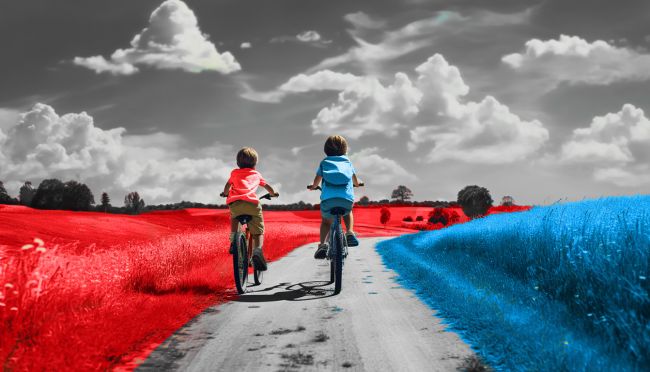
- 27 Nov 2023
- Research & Ideas
Voting Democrat or Republican? The Critical Childhood Influence That's Tough to Shake
Candidates might fixate on red, blue, or swing states, but the neighborhoods where voters spend their teen years play a key role in shaping their political outlook, says research by Vincent Pons. What do the findings mean for the upcoming US elections?
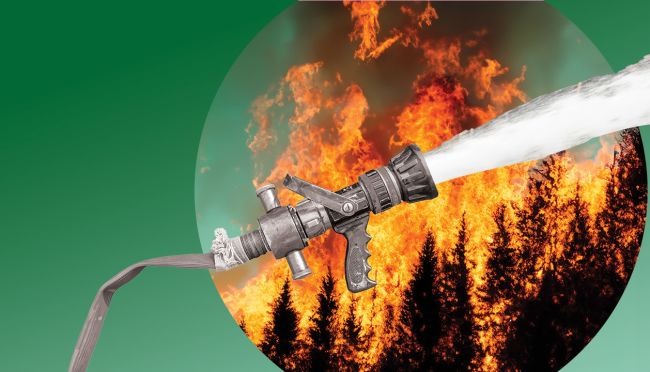
- 21 Nov 2023
- Research & Ideas
Employee Negativity Is Like Wildfire. Manage It Before It Spreads.
One overwhelmed person's gripes can quickly escalate into collective distress. Research by Amit Goldenberg gives managers reasons to pay close attention to teams' emotions. He offers advice to help groups reframe negative experiences.

- 14 Nov 2023
- Research & Ideas
The Network Effect: Why Companies Should Care About Employees’ LinkedIn Connections
What do Honeywell, IBM, and Pfizer have in common? Employees with strong professional networks. A study of 2 billion employee relationships on LinkedIn probes the power of such connections—and potential benefits for companies. Research by Frank Nagle.

- 09 Nov 2023
- HBS Case
What Will It Take to Confront the Invisible Mental Health Crisis in Business?
The pressure to do more, to be more, is fueling its own silent epidemic. Lauren Cohen discusses the common misperceptions that get in the way of supporting employees' well-being, drawing on case studies about people who have been deeply affected by mental illness.
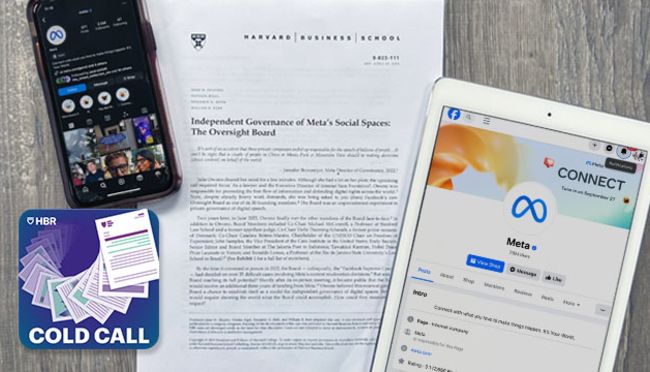
- 07 Nov 2023
- Cold Call Podcast
How Should Meta Be Governed for the Good of Society?
Julie Owono is executive director of Internet Sans Frontières and a member of the Oversight Board, an outside entity with the authority to make binding decisions on tricky moderation questions for Meta’s companies, including Facebook and Instagram. Harvard Business School visiting professor Jesse Shapiro and Owono break down how the Board governs Meta’s social and political power to ensure that it’s used responsibly, and discuss the Board’s impact, as an alternative to government regulation, in the case, “Independent Governance of Meta’s Social Spaces: The Oversight Board.”

- 06 Nov 2023
- Research & Ideas
Did You Hear What I Said? How to Listen Better
People who seem like they're paying attention often aren't—even when they're smiling and nodding toward the speaker. Research by Alison Wood Brooks, Hanne Collins, and colleagues reveals just how prone the mind is to wandering, and sheds light on ways to stay tuned in to the conversation.
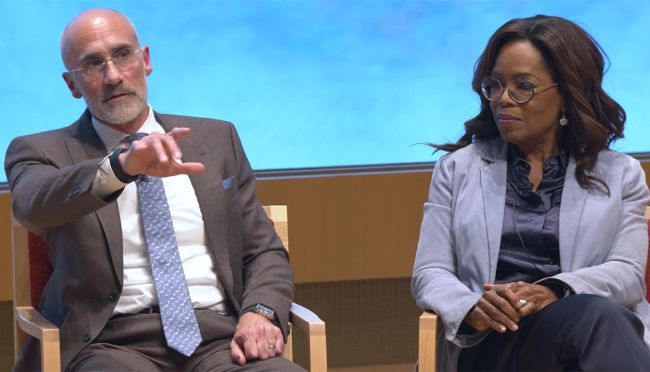
- 03 Oct 2023
- Research Event
Build the Life You Want: Arthur Brooks and Oprah Winfrey Share Happiness Tips
"Happiness is not a destination. It's a direction." In this video, Arthur C. Brooks and Oprah Winfrey reflect on mistakes, emotions, and contentment, sharing lessons from their new book.
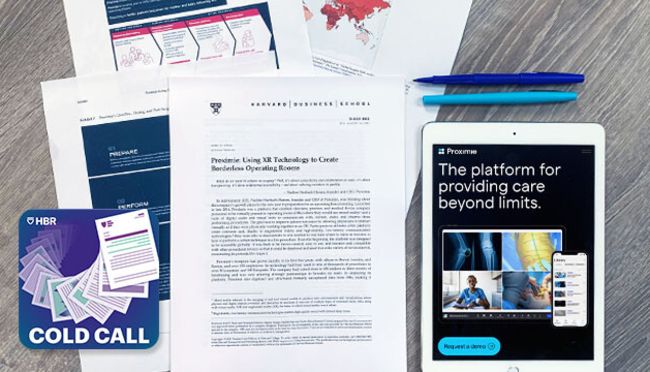
- 12 Sep 2023
- Cold Call Podcast
Can Remote Surgeries Digitally Transform Operating Rooms?
Launched in 2016, Proximie was a platform that enabled clinicians, proctors, and medical device company personnel to be virtually present in operating rooms, where they would use mixed reality and digital audio and visual tools to communicate with, mentor, assist, and observe those performing medical procedures. The goal was to improve patient outcomes. The company had grown quickly, and its technology had been used in tens of thousands of procedures in more than 50 countries and 500 hospitals. It had raised close to $50 million in equity financing and was now entering strategic partnerships to broaden its reach. Nadine Hachach-Haram, founder and CEO of Proximie, aspired for Proximie to become a platform that powered every operating room in the world, but she had to carefully consider the company’s partnership and data strategies in order to scale. What approach would position the company best for the next stage of growth? Harvard Business School associate professor Ariel Stern discusses creating value in health care through a digital transformation of operating rooms in her case, “Proximie: Using XR Technology to Create Borderless Operating Rooms.”
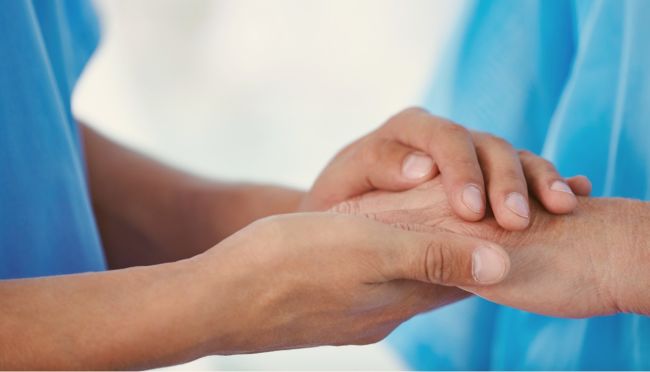
- 23 Jun 2023
- HBS Case
This Company Lets Employees Take Charge—Even with Life and Death Decisions
Dutch home health care organization Buurtzorg avoids middle management positions and instead empowers its nurses to care for patients as they see fit. Tatiana Sandino and Ethan Bernstein explore how removing organizational layers and allowing employees to make decisions can boost performance.
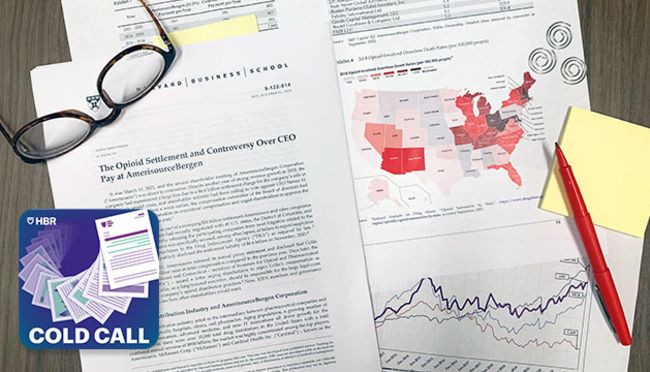
- 06 Jun 2023
- Cold Call Podcast
The Opioid Crisis, CEO Pay, and Shareholder Activism
In 2020, AmerisourceBergen Corporation, a Fortune 50 company in the drug distribution industry, agreed to settle thousands of lawsuits filed nationwide against the company for its opioid distribution practices, which critics alleged had contributed to the opioid crisis in the US. The $6.6 billion global settlement caused a net loss larger than the cumulative net income earned during the tenure of the company’s CEO, which began in 2011. In addition, AmerisourceBergen’s legal and financial troubles were accompanied by shareholder demands aimed at driving corporate governance changes in companies in the opioid supply chain. Determined to hold the company’s leadership accountable, the shareholders launched a campaign in early 2021 to reject the pay packages of executives. Should the board reduce the executives’ pay, as of means of improving accountability? Or does punishing the AmerisourceBergen executives for paying the settlement ignore the larger issue of a business’s responsibility to society? Harvard Business School professor Suraj Srinivasan discusses executive compensation and shareholder activism in the context of the US opioid crisis in his case, “The Opioid Settlement and Controversy Over CEO Pay at AmerisourceBergen.”
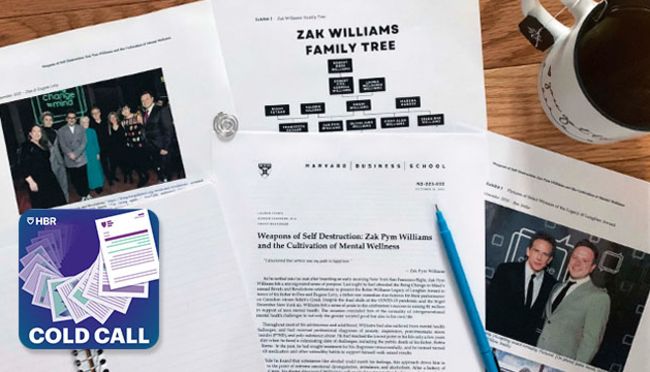
- 09 May 2023
- Cold Call Podcast
Can Robin Williams’ Son Help Other Families Heal Addiction and Depression?
Zak Pym Williams, son of comedian and actor Robin Williams, had seen how mental health challenges, such as addiction and depression, had affected past generations of his family. Williams was diagnosed with generalized anxiety disorder, depression, and post-traumatic stress disorder (PTSD) as a young adult and he wanted to break the cycle for his children. Although his children were still quite young, he began considering proactive strategies that could help his family’s mental health, and he wanted to share that knowledge with other families. But how can Williams help people actually take advantage of those mental health strategies and services? Professor Lauren Cohen discusses his case, “Weapons of Self Destruction: Zak Pym Williams and the Cultivation of Mental Wellness.”

- 23 Mar 2023
- Research & Ideas
As Climate Fears Mount, More Investors Turn to 'ESG' Funds Despite Few Rules
Regulations and ratings remain murky, but that's not deterring climate-conscious investors from paying more for funds with an ESG label. Research by Mark Egan and Malcolm Baker sizes up the premium these funds command. Is it time for more standards in impact investing?
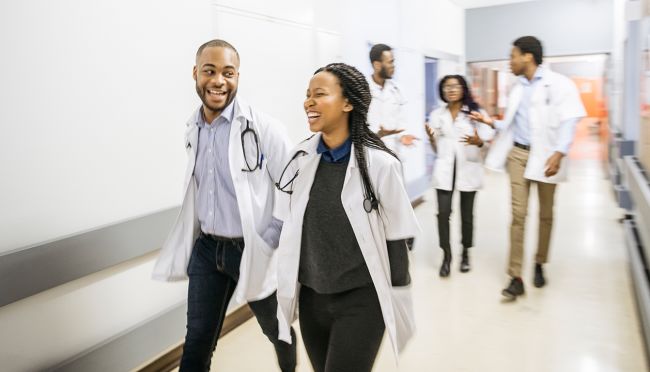
- 13 Mar 2023
- Research & Ideas
The Power of Personal Connections: How Shared Experiences Boost Performance
Doctors who train together go on to provide better patient care later in their careers. What could teams in other industries learn? Research by Maximilian Pany and J. Michael McWilliams.

- 16 Feb 2023
- HBS Case
ESG Activists Met the Moment at ExxonMobil, But Did They Succeed?
Engine No. 1, a small hedge fund on a mission to confront climate change, managed to do the impossible: Get dissident members on ExxonMobil's board. But lasting social impact has proved more elusive. Case studies by Mark Kramer, Shawn Cole, and Vikram Gandhi look at the complexities of shareholder activism.
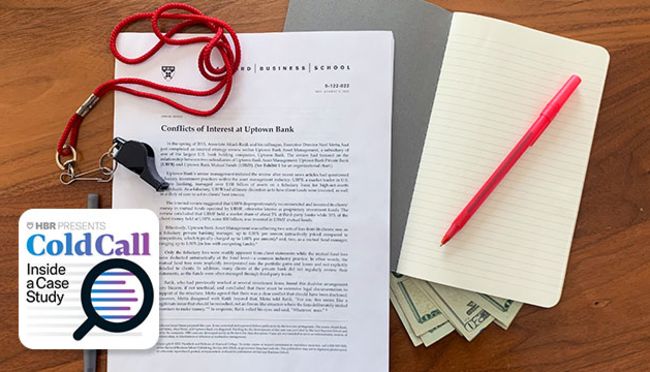
- 14 Feb 2023
- Cold Call Podcast
Does It Pay to Be a Whistleblower?
In 2013, soon after the US Securities and Exchange Commission (SEC) had started a massive whistleblowing program with the potential for large monetary rewards, two employees of a US bank’s asset management business debated whether to blow the whistle on their employer after completing an internal review that revealed undisclosed conflicts of interest. The bank’s asset management business disproportionately invested clients’ money in its own mutual funds over funds managed by other banks, letting it collect additional fees—and the bank had not disclosed this conflict of interest to clients. Both employees agreed that failing to disclose the conflict was a problem, but beyond that, they saw the situation very differently. One employee, Neel, perceived the internal review as a good-faith effort by senior management to identify and address the problem. The other, Akash, thought that the entire business model was problematic, even with a disclosure, and believed that the bank may have even broken the law. Should they escalate the issue internally or report their findings to the US Securities and Exchange Commission? Harvard Business School associate professor Jonas Heese discusses the potential risks and rewards of whistleblowing in his case, “Conflicts of Interest at Uptown Bank.”

Employees Out Sick? Inside One Company's Creative Approach to Staying Productive
Regular absenteeism can hobble output and even bring down a business. But fostering a collaborative culture that brings managers together can help companies weather surges of sick days and no-shows. Research by Jorge Tamayo shows how.